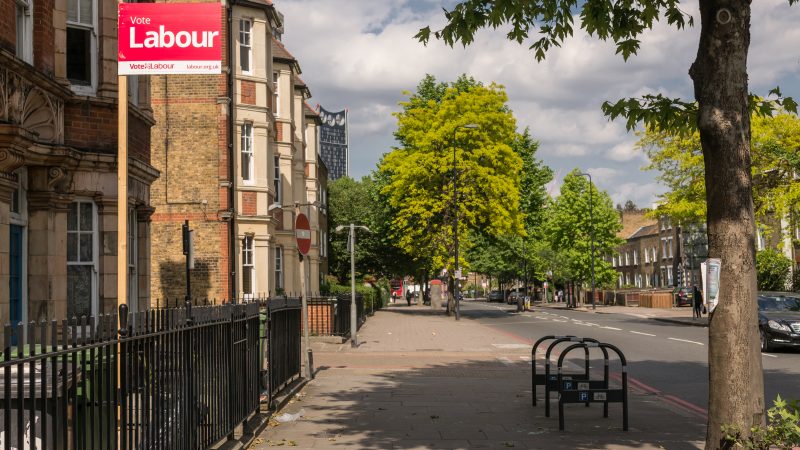
Labour is proposing to scrap the duty for Constituency Labour Parties to have equalities officers on their executives, and radically scale back the scope of policy debate at its annual conference.
Rule changes due to be voted on by the party’s National Executive Committee (NEC) today also include closing a potential loophole for members to support rival candidates such as Jeremy Corbyn or Jamie Driscoll without facing expulsion.
A copy of planned changes, seen by LabourList, makes clear the party plans to scrap Corbyn-era rules that empowered CLPs to send more motions to conference, and empowered their disability, Black and minority ethnic, LGBT+ and youth officers.
It is understood that, if approved by the NEC, the changes would then still need to be signed off at the party’s annual conference in Liverpool next month.
The changes have sparked a backlash from campaign groups Momentum, Open Labour and Disability Labour, but NEC member Luke Akehurst defended the plans.
Conference debate to be curbed
CLPs and other affiliates are currently able to send motions for Labour’s annual conference to debate on a wide range of issues. If approved, the proposed changes will see a reversion to pre-Corbyn rules that mean only “contemporary” motions can be submitted.
The precise definition is not clear, but the pre-Corbyn rulebook had suggested contemporary motions were those “not substantially addressed by reports of the NEC or National Policy Forum”.
The NPF considered Labour’s position on a vast array of subjects, resulting in a huge document only published earlier this month – suggesting only a far narrower set of issues remain eligible for debate.
A spokesperson for campaign group Momentum said: “These proposed changes represent yet another attack on the rights of Labour members from a Starmer leadership which is patently hostile to party democracy.”
They claimed the “anti-democratic clique” at the top of the party views members “not as the lifeblood of the party, but as a problem to be managed”.
Open Labour co-chair Amen Tesfay said: “A party that can’t listen to its own members at conference seems far too fragile and uncertain for a party which is leading in the polls.
“Trying to turn conference into a happy clappy performing seal show isn’t the direction of a modern, vibrant, democratic party.”
But NEC member Luke Akehurst said: “Since 2018 there has been a constitutional anomaly whereby the primary policy-making process for the Labour party has been submissions to the NPF – but there seemed to be the possibility to short-circuit that process by having an old-fashioned, confrontational motion based debate at conference. That was something the party had moved on from in the late 1990s.”
“This rule change removes that constitutional anomaly, because all stakeholders including the leadership and unions recognised how well the NPF process worked this year, and that should be the definitive route through which party makes policy.”
CLP officer role shake-up
Meanwhile another set of rule changes will see certain CLP officer roles eventually downgraded. The requirement for executive officers to include LGBT+, BAME, disability, policy and youth officers will be removed.
Current postholders do not appear to be affected and CLPs will still be able to appoint new ones, but new recruits will be less senior functional officers instead.
The changes reduce the executive size from 14 to six posts.
Tessa Milligan, Open Labour co-Chair said: “It’s a kick in the teeth to those who are young, LGBT, disabled or from an ethnic minority. It sends all the wrong signals.
“The justifications for this change are risible. It’s inward-looking, navel-gazing nonsense almost designed to be divisive.”
A Momentum spokesperson said: “They are showing a cavalier disregard for minority communities by attempting to abolish guaranteed roles for BAME, disabled and LGBT+ members. We urge all stakeholders in the labour movement to stand up for a democratic and pluralist party, in which all members are respected.”
A spokesperson for campaign group Disability Labour said it was “appalled”.
“The small places where disabled people could use their voices and lived experience to improve the hostile world we live in are being relegated to simply functional,” they added.
But one party source said changes reflected the will of many smaller CLPs outside cities in particular, who found the process of recruiting for so many officers “cumbersome”.
“CLPs always used to be divided into an executive who had voting rights, who are supposed to be able to make rapid decisions, and a larger group of functional officers, so it’s restoring that difference.
“A requirement to have a big group of executive officers with voting rights politicises certain roles so instead of going to the most suited person, people get elected on political slates.”
Ban on supporting independent rivals
A third set of proposed changes to Labour’s rulebook make clear that party membership will be terminated if individuals provide “financial support or assistance to, or otherwise support… an individual that stands in opposition to, or declares an intention to stand in opposition to, a Labour Party candidate in a public election”.
Currently the rulebook only explicitly limits membership or support of rival parties and organisations, rather than specifying that the rules cover independent individuals too.
The change appears likely to stop members supporting former Labour figures like Jamie Driscoll and Jeremy Corbyn in fights against Labour candidates.
Labour was not immediately available for comment.




More from LabourList
‘What Batley and Spen taught me about standing up to divisive politics’
‘Security in the 21st century means more than just defence’
‘Better the devil you know’: what Gorton and Denton voters say about by-election